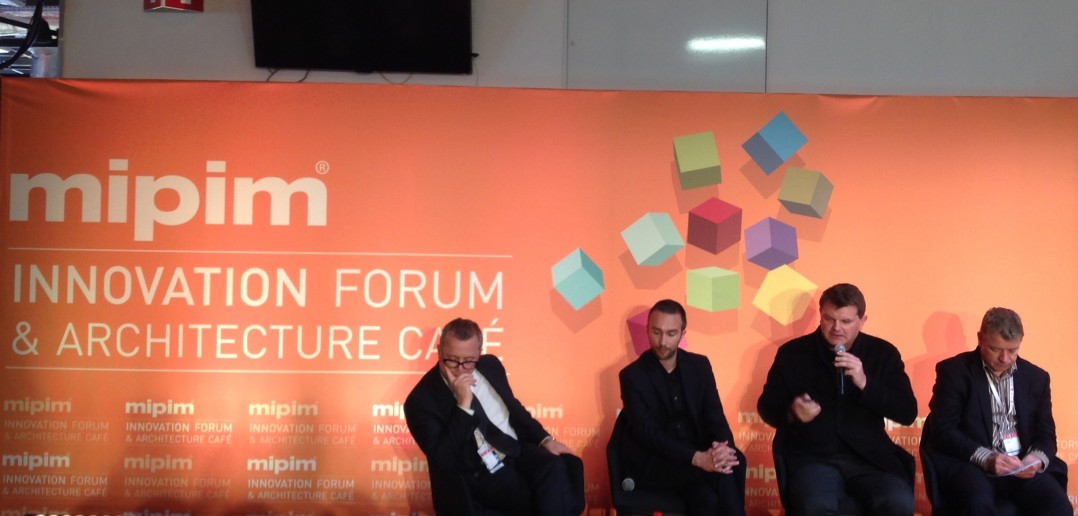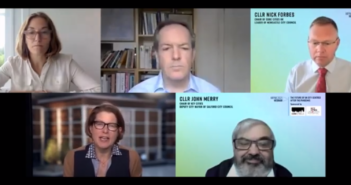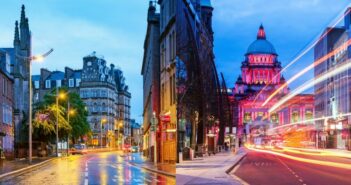From urban planning to designing resilient cities
Moderator:
Prof. Greg Clark, Chairman, The Business of Cities
Speakers:
Peter Maddon, Chief Executive, Future Cities Catapult
Kai-Uwe Bergmann, Partner, BIG
David van der Leer, Executive Director, Van Alen Institute
Fadi Jabri, Nikken Sekkei
- What are the innovative ways and simple technology tools to address resilience challenges?
- How urban resilience can make cities safer from disasters?
- What is the influence of architecture, urban planning… on the built environment and resilient cities?
Key points:
Peter Maddon
Changes & challenges:
- huge demographic, social, economical, climate & technological changes;
- new consumption demands and needs due to different factors (for example, growth of the middle classes in cities);
- energy problems & resilience challenges (how to produce, save and use new types of energy in a better way or how to protect cities from natural disasters);
- urban transport demands and pedestrian areas;
- investments & efficiency : how to design better cities with increased reliability and efficiency;
- cities for people: urban framework and environment, their interaction with citizens
Technology:
- A more connected world with new tools (ex. big data, Internet of things)
But
- With inefficiency in how cities were built, it is necessary to rebuild them to satisfy new demands
- « It’s never just about the technology », technology is a tool, not the objective
Investments:
- Where to find money to rebuild and redesign cities, to make them safer and more efficient?
Resilient & smart cities:
- Impossible to control everything and protect the entire city from natural disasters, which is why sometimes it is necessary to prioritise which places need protection in the first place.
Urban planning:
- It might be important, as an accumulation of bad decisions might be a disaster for cities’ development.
- Demographic growth & immigration is an issue. For example, in London and Birmingham it is not easy to predict future immigration flows, but it is possible to predict that it would take place and therefore take appropriate action.
Kai-Uwe Bergmann
Resilient & smart cities:
- How to rebuild New York in order to protect the city from natural disaster, such as storms?
- The protective infrastructure, developed by their company, aims to become a social & cultural part of the city – not just a protective wall, but an « urban furniture » & « stage of life ».
- They decided to take into consideration New York citizens’ needs, with different communities & groups sharing their thoughts and ideas with the developers.
- In order to develop a smart city, lots of different initiatives must be taken, not only 1 or 2 projects. For instance, every building must have its own defense from natural disasters.
Smart cities:
- Great example of Singapore: 50 % of construction projects are green
Energy:
- Germany announced that by 2022, they will get rid off nuclear power. They will need to figure out new energy sources able to fill the gap.
Urban planning:
- Important, but it depends on the city.
David van der Leer
Challenges:
- Increasing population, natural disasters & other factors should be taken into account (example, New York).
- « Design can improve everyday life ».
Resilient city:
- Example: New Orleans. How to redesign the city & deal with empty spaces?
Data & technology:
- Data is not always available, it is not easy to collect, understand and use data in order to improve existing cities.
Urban planning & sustainability
- It is important to create more flexible models in order to be able to respond more quickly to changes and challenges.
Fadi Jabri
Cities & innovation:
- Examples. Dubai: a young, growing fast, efficient city with good infrastructure. Moscow: huge problems with traffic. Tokyo: how to protect the city from natural disasters?
- Data is not always available (example of Moscow where there is no public access to the information concerning underground system).
Resilient cities & Urban planning:
- Long-term problems need to be addressed: resilience, smart cities, efficiency & energy issues.
Check out the MIPIM 2015 Conferences & Events Programme
Discover the MIPIM 2015 Live Videos.



